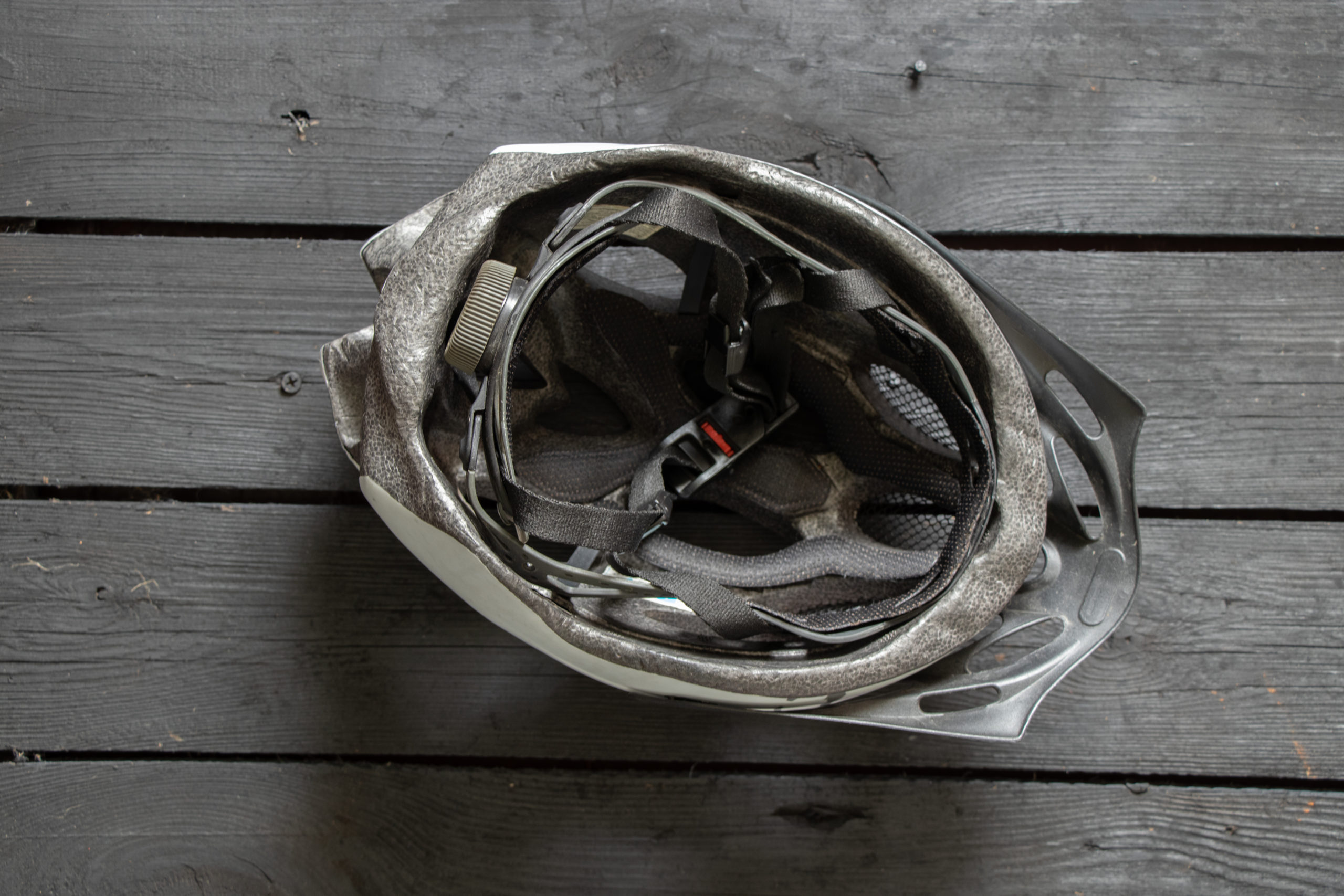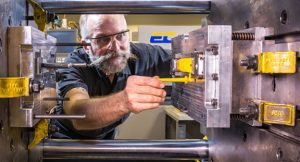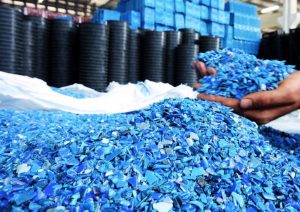In sports, one thing that’s more important than winning is safety. Because the risk of injury is real across the board, helmets are key to helping manage health risks. In baseball, a ball off the bat can cause serious or even fatal injuries if it strikes someone in the head, while in football, players endure repeated impacts to the head, risking concussions and other injuries. From noncontact sports to full-on aggressive contact play, protective headgear is a must.
Helmets are a critical piece of safety equipment that can save lives and make games safer. In recent years, there has been an intensive focus on advancing the technology behind many of these helmets at the professional level. However, sporting equipment manufacturers must also supply high-quality helmets to markets including amateur youth sports leagues and the average consumer.
Plastics play a major part in the production of these vital items, and injection molding is one of the most reliable and versatile ways to achieve the shapes a helmet needs. Let’s explore why this manufacturing method and these materials suit helmet production so well.
Why Choose Plastics?
Even though today’s most advanced professional helmets often use a core made from carbon fiber, the outside shell is usually made from molded plastic, or thermoplastics. Many other helmets use plastics in similar applications, while some even feature an all-plastic construction. There are several reasons why.
- Durability. A well-selected plastic can stand up to heavy use and abuse in sporting contexts while still maintaining important material properties.
- Versatility. With advanced mold design, it’s possible to achieve a wide variety of shapes in plastics, creating opportunities for many kinds of helmets. Even within a specific class of helmet, working with plastic allows for tooling molds in a variety of sizes for a snug fit.
- Colors. Plastics come in virtually any color imaginable and, when combined with postproduction finishing techniques, are easy to adapt to suit team themes.
- Volume. Injection molding processes are inherently suited for higher-volume production runs, which is ideal for a sports equipment manufacturer that must meet demand.
What Does the Design Process for Helmets Look Like?
Creating the tooling for a helmet injection mold might start with an existing design, or you may want to create a new product from scratch based on a different concept. In either case, the work takes place primarily in advanced computer modeling software with guidance and insight from experienced engineers. There are many elements to consider along the way. A good design is about not only producing the correct safety profile, but also doing so in a way that is reproducible in a mold.
Such modern needs demand advanced technology, such as software for Moldflow® analysis. Consider that many helmets have gaps or holes for ventilation in them. A computer analysis of how plastic will flow through the mold helps ensure that such design features don’t introduce flaws into the finished shell ejected from the mold. For helmets that consist of multiple shells bonded together, achieving the right design tolerances is also a function of extensive testing prior to tool production.
Working Closely With a Plastics Manufacturer Makes a Difference
Producing a reliable sports helmet requires harmonizing many factors, from material selection to design and ultimately manufacturing. Quality control and assurance procedures that function at a high level are critical, too — especially when you may need to conform to specific sporting league standards for helmet dimensions.
At Reliant, we understand the importance of precision, reliability, and quality outcomes a product as important as a sports helmet requires. With experience in high-level industries, including aerospace and defense, we have the advanced knowledge and understanding of thermoplastics and injection molding that sporting goods manufacturing demands. Discuss your project or design requirements with a member of the Reliant team today.




